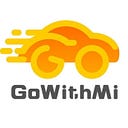GoWithMi has partnered with Indonesia’s largest WiFi hotspot provider. Signing the “Bancor Agreement” to evaluate the value of data with GMAT as a form of payment.
Recently, GoWithMi has cooperated with HIGO, the largest WiFi hotspot provider in Indonesia. Signing up what we called “Bancor Agreement” to evaluate the value of data provided by HIGO and give GMAT as a form of payment. The result has opened up new paths for blockchain projects and data providers to “cooperate and mutually benefitted”. It is reported that this is the first time in which blockchain technology is use to evaluate the value of travel data.
HIGO have 500,000 WIFI hotspots in Indonesia covering more than 100 schools, more than 30 shopping malls and several airports in Indonesia. In this cooperation, the travel data comes from the mobile WIFI hotspot installed in the taxi by HIGO. The mobile hotspot generates a large amount of travel trajectory data while serving the passengers.
In general, map service providers need to work with multiple data providers. Taking traffic conditions as an example, the red, yellow and green of the roads are generated by the data trajectory of the data provider and the data of the map service provider. Under normal circumstances, map companies such as Google and Baidu use the travel trajectory data to purchase the traffic conditions. However, each travel trajectory does not assess whether the overall road conditions are useful or valuable and they often reduce costs by suppressing the price of data providers.
How much is the data worth? GoWithMi co-founder & CTO Simon pointed out that “the data value is not unified” is the core contradiction between map service providers and data providers in the past. The root cause is that although most of the data used by map service providers such as Google and Baidu are obtained from data providers, they often use the influence of large companies to squeeze the interests of data providers. In order to solve this pain point problem, GoWithMi tries to evaluate the data contribution value based on the blockchain and proposes the “Bancor protocol”, which replaces the bargaining between buyers and sellers by algorithmic consensus rules and directly pushes the data value from the contribution results. The content of the agreement can be simply described as: the real-time and freshness of traffic conditions as the contribution target and basis. With the decline of freshness, the demand for single road data becomes higher and the price increases. Any travel data updates this road. Road conditions can get a better return.
Simon said that this will be a new attempt to “travel data cooperation” around the world, with a blockchain spirit and a mutual benefit cooperation with suppliers.
Visit and Join us on:
Website: GoWithMi.com
Telegram Community: t.me/gowithmi_en
